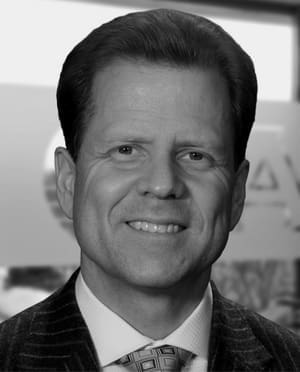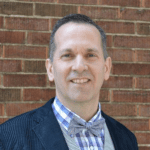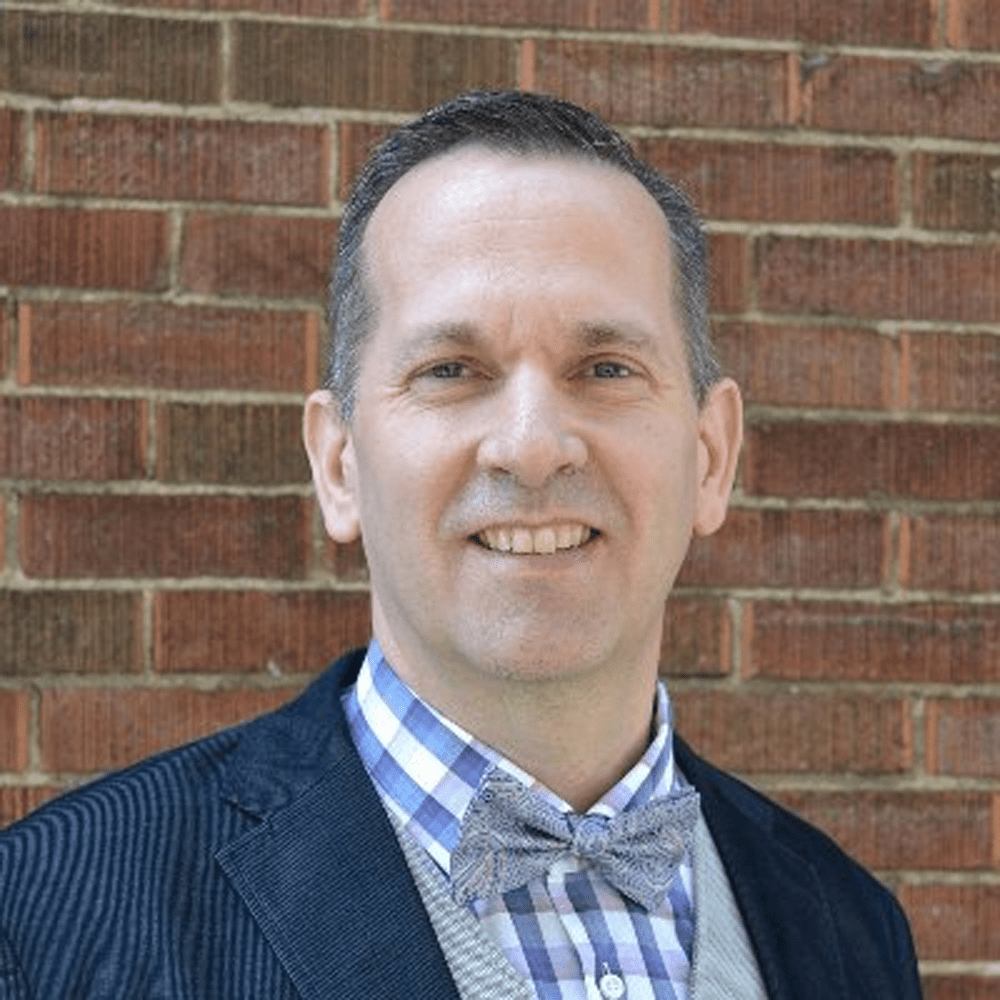For many, the connection between a high-level financial industry leader and a personal faith rooted in love, trust and integrity isn’t immediately obvious—an impression reinforced by the misdemeanours of high level leaders in certain sectors of the financial industry. Scandal and economic implosions have pushed us toward the stereotype that people who manage massive globe-circling funds have abandoned principle in favour of profit as they seek to maximize gains at any cost.
Jonathan Wellum fits the profile of a high-level financial industry leader generating growth and profit, but is distinguished by doing so in keeping with the principles and ideals that have shaped his character over the course of his life. He spent nearly twenty years—most recently as CEO—at AIC, Canada’s largest privately-held mutual fund company. Since leaving AIC in 2009, Wellum has formed a new investment company, Rocklinc Investment Partners.
Comment spoke to Wellum in November 2009 about his role in the financial industry and how his faith has informed his work.
Comment: What where the formative influences in your life?
Jonathan Wellum: I was raised in a strong Christian home. We regularly attended church from Sunday school to morning services to evening services and even midweek meetings. It was a very structured environment, and I saw my parents’ dynamic Christian faith lived out in vibrant ways.
I also have three brothers, two of whom are in full-time Christian ministry. One is the principal of Toronto Baptist Seminary in Toronto and was a pastor for twenty years. My youngest brother is a professor of theology at Southern Baptist Seminary in Louisville, Kentucky. He’s also the editor of the Southern Baptist Journal. We both studied at Trinity Evangelical Divinity School in Chicago in the late 1980s. All four of us are confessing Christians.
Comment: What did you study in your formal education?
JW: From high school, I was interested in economics, business and finance. I completed a Bachelor of Commerce at McMaster University in Hamilton, Ontario. I was also very interested in science because my dad and brother were chiropractors. That led to a B.Sc. at the University of Waterloo, and then back to McMaster for an M.B.A. I loved to learn. At that time I thought everything to do with business was accounting, so I started off in the accounting field. I started working at one of the major accounting firms and I disliked it immensely. I did a lot of audits, which I find very boring. Accounting is a wonderful profession, but it wasn’t for me.
Being dissatisfied with my work, I began looking for another angle. My youngest brother was at Trinity Evangelical Divinity School in Chicago (now Trinity International University) finishing a Master of Divinity. He said, “Why don’t you come down and spend a couple years here? Pursue some of your other thoughts in economics, finance and politics, and tie them into theology.” I was an avid reader of Cornelius Van Til, Abraham Kuyper and Francis Schaeffer. I was very concerned with the drift of Western civilization and culture, and I thought it would be great to study theology and firm up some of my foundations there. That way, I thought, I would be more useful either in church ministry or back in the business world. So I went to Trinity and completed an M.A. in Christian Thought (part of their systematic theology program).
My two years at Trinity were wonderful. I worked on a Reformed critique of John Rawls’s theory of justice, which was very influential in the 1970s. Rawls was a Harvard professor who wrote extensively on political science, political economy and so on. I felt that his theories of human rights and distributive justice—the two key pillars of his work—were completely groundless. How could you appreciate properly distributed justice unless you had Christian beliefs with which to support human rights and understand the different gifts and abilities that God gives? For the State to interfere with those outcomes would trounce on individual rights. Rawls’s ideas were actually in conflict, and neither would be supported by a chance universe. That thesis helped me see the importance of biblical and Christian truth underpinning all of reality—that if you did not start with a personal God, with an ethical and moral universe reflecting his character, you were going to have trouble in all areas of the university, from law to sociology to psychology to a theory of justice to biology to physics.
When I stepped back into finance and had to allocate capital to companies operating in every sphere in the economy, my Christian worldview became a very important part of how I assessed opportunities. It influenced how I looked at different companies, put a value on them and assessed risk. My worldview influences how I view capital markets, where I invest and how I assess some of the long-term trends that are taking place—trends that are shaping our culture-making today and will impact us in the future.
One trend that I believe will drastically impact the global economy is the dramatic aging of the world’s population, coupled with family formation habits and decisions around the world. You can look at those decisions from a moral point of view, or you can also look at them from a strictly economic perspective, but the two need to intersect at some point. From an economic perspective, our whole world has been geared toward growth. For the last century, our industries have been bent on numerical growth: selling more automobiles, selling more pharmaceutical products, selling more real estate, whatever it might be. In the next 10 to 15 years, we will see businesses stagnate, and in some cases, shrink. Yet that isn’t really factored into the typical economic analysis. How does a world pay for the promises made in pension programs? How does it pay for medical costs with a shrinking population? If you’re taking a longer view, you’re looking at social factors and cultural factors, and considering how it impacts the economic decisions.
Comment: How have you balanced the tensions of worldview, your exploration of vocation, and your work in the financial marketplace?
JW: When I look back, I see a well-orchestrated pathway that I had very little to do with. I can see God’s hand in the progression. I started off in commerce, became interested in science, then went back into business. I spent a lot of time wondering what God had in mind for me. I wondered if I should go into full-time church ministry, since a couple of my brothers were going in that direction.
I struggled with going into ministry, and I struggled with going back into “secular” employment. When I finished up my M.A., I was accepted to the London School of Economics. Again, I started and stopped my Ph.D. studies. I eventually came back to Canada and got in touch with Michael Lee- Chin, whom I had met while working out at the gym at McMaster University. Michael had this little investment company. I had no idea that I would end up working there for 19 years.
I was thankful that I started off in a small company, and I try to use it as a lesson for younger people: Be careful about just jumping into a huge organization—a big bureaucracy— when you graduate, because you’ll probably never get out of it. Take risks when you’re young. Go to a smaller company, start a business, try to make a difference. I encourage people to do that before they’re married or have children and greater responsibilities. There were a lot of moments on my own path when I wasn’t sure what God had in mind, but looking back after twenty years, I can make more sense of it.
Comment: In this process of integrating your vocation, your opportunities and education, who influenced you the most?
JW: The integration of faith and business is something I had to struggle through on my own. I did not have a lot of role models for it, which I think was unfortunate. What I did have was exceptionally strong models when it came to Christian faith, starting with my father and mother, who practiced that out in the world— but not necessarily in the financial business. I also had an excellent pastor.
On the business side, Michael Lee-Chin had a lot of influence on me. He and I are very different, but what he pointed me to—and what made the most sense to me—was his disciplined long-term fundamental analysis for investments. He always maintained that we should invest in businesses as we would invest in people. The stock market should not be treated like a casino or a place of speculation. It is a place for long-term capital allocation. That was music to my ears, and it fit with my Christian worldview.
He pointed me to Warren Buffett. In my early days with AIC, I studied everything that Warren Buffett had done in his career. I’ve met Buffet, and he is still investing. He comes across as someone who uses common sense, and lives by principles like integrity and transparency. He looks for honest people who know how to allocate capital and generate profits, a form of accountability for the capital you’ve been entrusted with.
As I matured, I would take my Christian influences and then work out how I would integrate that with my business influences. In my business life, I’ve never really come upon a lot of Christians who could have mentored me along the way in the integration of faith and my work. But having very strong examples and role models on both sides pushed me to work it out in practice.
Comment: Is business inherently good or bad?
JW: I have visited and researched hundreds of companies. I would argue very strongly that most business owners and most executives in businesses are running organizations and companies of significance. Most are exceptionally principled and very ethical intheir practices. I take issue with the media’s portrayal of everyone in business as people “out for themselves”—people who are careless and greedy. Of course there are people like that, and they are the ones who get the headlines, but I think some of the best-run companies and some of the most important businesses we have here in Canada and the United States are run by individuals who may not be Christians, but exemplify many of the ethical principles that we would see as part of the Christian experience. They are honest. They care about their employees and operate businesses that have legitimate concern about the people who work there: working conditions, fair pay, long-time intergenerational well-being and so on.
Comment: What kinds of pressures do business leaders face today?
JW: There is enormous pressure on people running companies and on boards just to produce numbers in the short term, and not necessarily make the long-term commitments. That’s a tension. Those who run companies want to think long-term, and a lot of them are much more disciplined than we think. Probably the most undisciplined, as we’ve seen, are the ones who are in the financial services industry. There is proper criticism of Wall Street and others for financial engineering—creating financial products that really have no purpose in the economy, but are just pieces of paper to be traded. We’ve had a lot of evolution in the development of “products” that really have no place. There are isolated sectors where the greed has become intense, and people can “game the system” to make more money than they should. They’re not a productive layer of the economy.
But then there are other layers of the financial service industry with incredibly gifted people who try to price risk and do their best, and they run very, very good organizations. In industry, agriculture and other types of business, many companies are well run, taking longer term views. Our culture leans too much on short-termism, but there are some wonderful businesses fighting back and trying to make long-term decisions.
Comment: Is having a Christian worldview a pre-requisite for doing good in business?
JW: Look at Bill and Melinda Gates and the Gates Foundation. As Christians, we may have major issues with some of his beliefs, but what is Bill’s objective in his work? I think you have to give him the benefit of the doubt—he cares about people, and he cares about poverty in different parts of the world. We may disagree on what shape that takes, but he takes helping other people seriously. He takes it so seriously he runs what is one of the best foundations of its size in the world—so much that a tough investor like Warren Buffett will leave a substantial part of his net worth to that foundation, because he wants a well-run, efficient, well-oiled business to be managing his assets for the long term.
Comment: How do we change culture?
JW: All of life comes under the authority of Christ. We have to work with people who believe very differently than we do and make a difference through our work and testimony. We need to renovate, change and work with the existing structure that’s there—improve it, change it. Christians should be engaged in the culture and not separated from it. There are cases where separation is appropriate for a time—for instance, Christian schools. But it is virtually impossible, and quite wrong, to isolate oneself from the world. We are supposed to be in the world, though not of it. In finance, I deal with a great deal of people who are not Christians, but it’s there I can be a positive witness and testimony.
Comment: Some people think being faithful means cutting yourself off from the world. You are suggesting that we are to be faithful but engaged—is that a fair summary?
JW: Engaged! Absolutely engaged! In fact, given the seriousness of the hour—and I do think it is a serious global hour that we live in—Christians need to be more engaged. We must equip the next generation to take more risk in pursuing more significant leadership positions. Even if it is God’s will that our culture increasingly comes under his judgement, this in no way whatsoever supports retreat. To disengage and to not be communicating the gospel in a dark world is, I think, completely inconsistent with biblical truth.
Comment: What kinds of things interest you outside of your work?
JW: I am a fairly conservative person but I like speed—fast boats and fast cars. I like the classic GM Corvette—the fastest version I can get my hands on. People get a kick out of seeing me as fairly conservative, and then seeing me at the wheel of my Corvette or the helm of my speedboat. I enjoy being outside. I enjoy the active life. I’m thankful for a healthy body. I try to look after myself because I do enjoy physical activity—a great offset to our business, which involves sitting around, reading and thinking a lot. I like being active. I enjoy water-skiing and water sports.
There’s no end to cars you can buy, to boats you can buy, and you’ve got to be able to shut it down at some point and justify what you spend. That’s where I’ve admired Warren Buffett, who is very wealthy but lives a relatively modest existence. To me, that kind of discipline is impressive and admirable. Creating wealth is different than protecting wealth and using it wisely.



